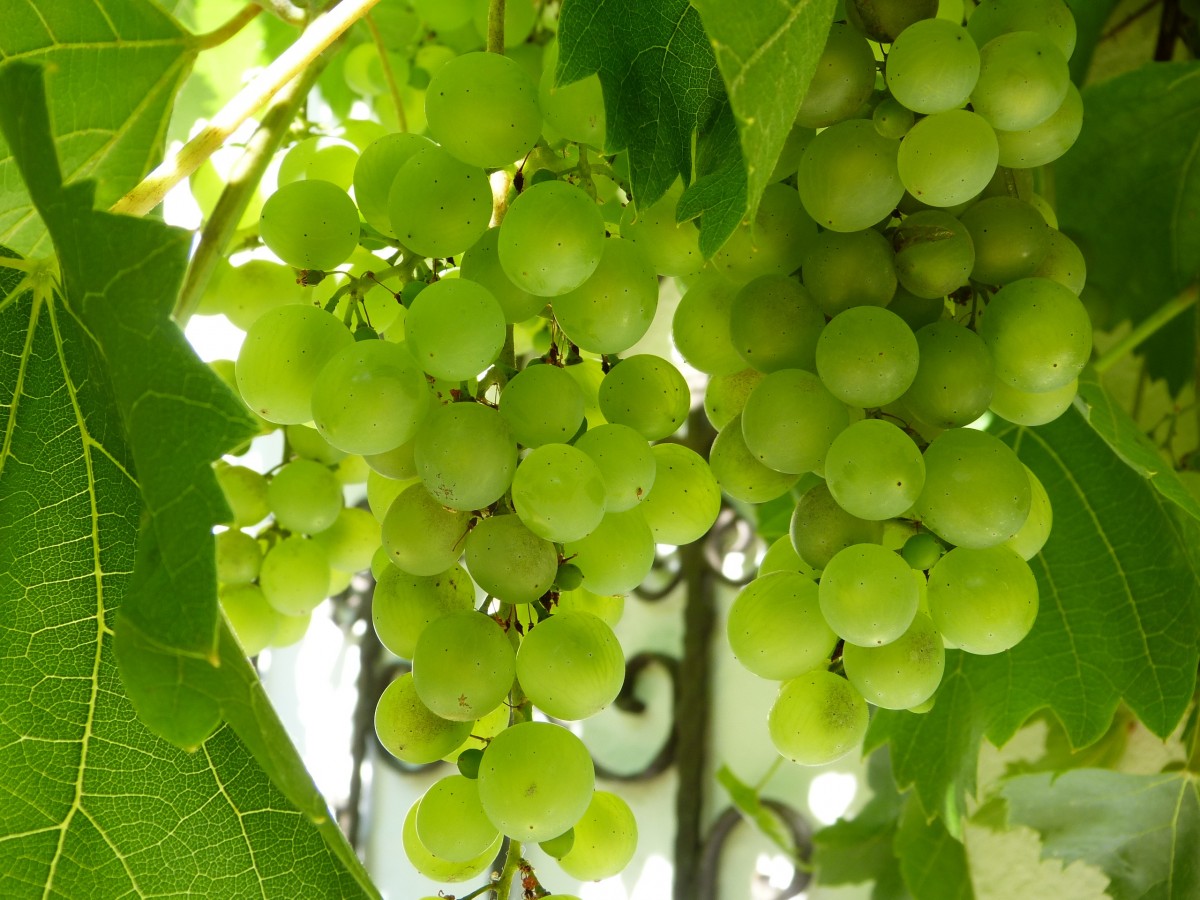Green Grapes
Written by Yi Yuksa (이육사, 1939)
Translated by David E. Shaffer
The July of my hometown,
The season of ripening green grapes
Whisperings of an approaching village epoch
The far-off sky dreams and little by little sets in
The blue sea beneath the sky bares her bosom
And the ship in white sail is gently pushed in
The guest whom I await, with body so weary
Draped in grape-green topcoat, said he would call on me
If I could but meet him to pick and partake of these grapes
Getting my two hands dripping wet would be such a pleasure
On our table, my child, place the whitest ramie serviette
Upon a silver tray.
청포도
내 고장 칠월은
청포도가 익어 가는 시절
이 마을 전설이 주저리주저리 열리고
먼 데 하늘이 꿈꾸며 알알이 들어와 박혀
하늘 밑 푸른 바다가 가슴을 열고
흰 돛 단 배가 곱게 밀려서 오면
내가 바라는 손님은 고달픈 몸으로
청포(靑袍)를 입고 찾아온다고 했으니
내 그를 맞아 이 포도를 따 먹으면
두 손은 함뿍 적셔도 좋으련
아이야 우리 식탁엔 은쟁반에
하이얀 모시 수건을 마련해 두렴

The Poem and the Poet
The life of Yi Yuksa (1904–1944) very closely paralleled the years of Japanese domination of the Korean Peninsula. In his short years, Yi did much more than write “Green Grapes”: He also wrote essays on topics from metaphysics to history and politics; he was an ardent political activist and still found time to write thirty-six poems exhibiting the height of poetic technique.
Though given the birth name “Won-rok,” Yi is commonly known by his penname, “Yuksa,” a monicker originating from his political activities. Imprisoned by the Japanese at the age of 24 for anti-imperial activities and confined to cell number “264” (“i-yuk-sa” in Korean), Yi took the penname “Yuksa,” pronounced the same as his cell number, as a perpetual reminder of the oppression of the times in which he lived.
Since Yi was so active for Korean independence from Japanese imperialism and jailed multiple times, his poetry often strongly reflects his political bent, but at other times, it is much more lyrical. “Green Grapes” is representative of the latter.
Bright and uplifting colors – images of hope – interfuse “Green Grapes.” Evident are the green-blues (green grapes, grape-green topcoat, blue sea, sky) and the whites (white sail, whitest ramie serviette, silver tray). Less evident, but ever present, is the darkness of the times (far-off sky, body so weary).
Though cloaked in metaphor (necessitated by the times in which he lived), Yi’s ardent nationalism seeps through. Yi’s hometown is the home of the Korean people, the fatherland, now occupied. But Yi envisions independence coming (whisperings of an approaching village epoch, ripening green grapes), an independence most welcome to the Korean people (the blue…sea bares her bosom). This freedom was not to come on its own: It needed to be persistently fought for to be achieved (little by little sets in, is gently pushed in). Independence is the coming “guest” that is being dreamed of, a guest weary from his struggles, who would be most splendidly received (place the whitest ramie serviette / Upon a silver tray).
It is a pity that Yi was not able to “pick and partake” of Korean independence regained. For Yi, “body so weary” most likely referred not only to the freedom fighters of his poem but to the poet himself. Yi Yuksa died in a Japanese prison in Beijing in 1944, a year before the “guest” arrived in his hometown of green grapes.
The Author
Dr. David E. Shaffer is a long-time resident of Gwangju who was for many years a professor at Chosun University. He is now the board chair of the Gwangju International Center and editor-in-chief of the Gwangju News. He has written extensively on English teaching and learning, and has published books on Korean language, poetry, and traditional culture. Dr. Shaffer was also the 1994 top prize winner of The Korea Times’ Modern Korean Literature Translation Awards in the poetry division.






It is a nicely interpreted poem from a nice poem. The added explanation is also a great tribute to the poet.